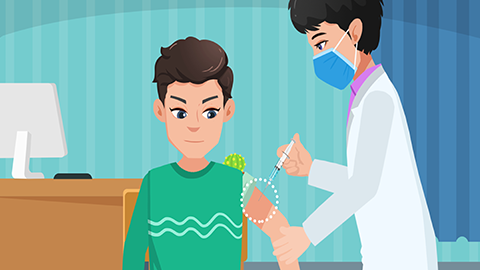What are the post-vaccination precautions after receiving a rabies vaccine?
Generally speaking, rabies vaccine refers to the vaccine for rabies. Post-vaccination considerations include dietary restrictions, avoiding alcohol consumption, avoiding strenuous exercise, preventing wound infections, and cautiously using other medications. Detailed explanations are as follows:

1. Dietary Restrictions
After receiving the rabies vaccine, avoid eating spicy or irritating foods such as chili peppers, Sichuan peppers, and mustard. These foods may stimulate the body, causing blood vessel dilation, increasing the likelihood of adverse vaccine reactions, and potentially interfering with the immune response process of the vaccine in the body.
2. Avoid Alcohol Consumption
Alcohol can accelerate blood circulation, possibly triggering adverse vaccine reactions such as fever, headache, and fatigue. It may also affect the vaccine's ability to induce antibody production in the body, reducing the protective effectiveness of the vaccine.
3. Avoid Strenuous Exercise
Strenuous activities such as sprinting, playing basketball, or soccer can put the body into a state of stress, increasing the body's metabolic burden. This may affect the immune efficacy of the vaccine and could also lead to discomfort reactions at the injection site, such as increased redness, swelling, and pain.
4. Prevent Wound Infection
If the vaccine was administered due to an animal bite or scratch, proper wound care is necessary. Keep the wound clean and dry, avoid getting it wet, change the dressing regularly as directed by a physician, and prevent bacterial infection that could impair wound healing and vaccine effectiveness.
5. Cautious Use of Other Medications
During the vaccination period, if other medications are needed, consult a physician first. Some medications may interact with the rabies vaccine, affecting its effectiveness or increasing the risk of adverse reactions, such as immunosuppressants.
In daily life, it is recommended to avoid contact with stray animals as much as possible to reduce the risk of animal bites or scratches. If keeping pets at home, ensure regular rabies vaccinations and proper health management for pets.






